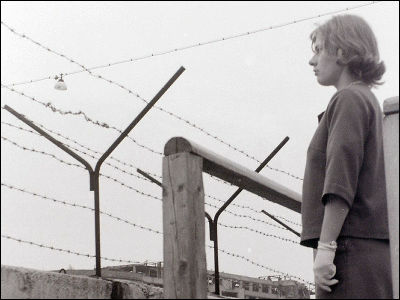History of Yugoslavia's domain '.yu', which was abolished with the disappearance of the country

Yugoslavia, which once existed in southeastern Europe, disappeared after disintegrating and forming. The domain '.yu' that was once used in Yugoslavia also stopped being used as the country changed, but
Yugoslavia's Digital Twin — The Dial
https://www.thedial.world/issue-9/yugolsav-wars-yu-domain-history-icann
Top-level domains such as '.yu' and '.com' were assigned to each country by an organization called the Internet Assignment Agency (IANA) until 1998, when the role was transferred to ICANN. Once a country code such as '.yu' is established by IANA, all information about that domain is controlled by the respective country's government or designated entity.
The story of '.yu' was created in 1989 by Borka Jerman-Vlasić, a computer scientist from the Socialist Republic of Slovenia, one of the countries that made up the Socialist Federal Republic of Yugoslavia at the time. It begins with the advancement of the republic's internet connectivity.
In 1989, IANA entrusted the management of '.yu' to Mr. Blajic, and through the efforts of Mr. Blajic and others, the Socialist Federal Republic of Yugoslavia was able to connect to the Internet in 1991. '.yu' had just been introduced at this time, but a few months earlier, Slovenia and Croatia had declared independence from the Socialist Federal Republic of Yugoslavia, and the status of '.yu' was in jeopardy. Ta. Theoretically, ``.yu'' was supposed to end with Slovenia's independence.

Slovenia, which joined the United Nations one year after independence, received a new domain '.si' from IANA, and the Slovenian government established a new organization to manage it, the Slovenian Academic Research Network (ARNES). At this time, the ARNES scientists who should originally have used '.si' could not wait until the operation started and secretly continued to use '.yu'. In the end, ARNES continued to use '.yu' for the next two years.
On the other hand, outside of Slovenia, the situation was different. In 1992, the Socialist Federal Republic of Yugoslavia was dissolved and the new Federal Republic of Yugoslavia was established. The United Nations imposed sanctions on the new nation, including a ban on scientific and technological cooperation, and required states to reapply for membership. Scientists in the Federal Republic of Yugoslavia are then cut off from all international network traffic. If scientists wanted to access the Internet, they had to either wait for the name dispute to be resolved and be assigned a new domain, or somehow get their .yu back.

To overcome this situation, scientists from the University of Belgrade in Serbia sent a direct email to IANA's founding manager, John Postel, requesting that the regulation be revoked. After about two years of back and forth, Mr. Postel agreed in the spring of 1994 to transfer ``.yu'' to the Federal Republic of Yugoslavia, ensuring that ``.yu'' continued in the name of global academic cooperation. It was decided.
Even after the Federal Republic of Yugoslavia changed its name to Serbia and Montenegro in 2002, the '.yu' domain continued to be used. When Montenegro declared independence in 2006, ICANN created two new domains: '.rs' for Serbia and '.me' for Montenegro, with the condition that '.yu' be 'retired'. More time passed, and in 2010, '.yu' was finally abolished.

At its peak, .yu reportedly hosted approximately 32,000 websites. Due to the abolition, more than 4,000 websites with '.yu' domains are no longer accessible or indexed by search engines.
The Internet Archive's Wayback Machine, which archives websites, has several websites registered with .yu domains, but snapshots are often incomplete or corrupted. About. The Internet Archive, which was established in 1996, has no records of the early days of the Internet in Yugoslavia.
The Dial says, ``Given that the ``.su'' assigned to the Soviet Union still exists in 2023, the deletion of ``.yu'' may have made sense from a technical point of view. But it shows that standards were not applied equally.If .yu had survived, it would have been an important achievement that would help us reflect on our country's heritage and challenge our governments. It could have preserved objects. Or it could have become a symbol of Serbian nationalism. Ideally, .yu would be a hub of Yugoslavia's collective memory, a kind of monument. It was supposed to be a thing,' he said.
Related Posts:
in Posted by log1p_kr







